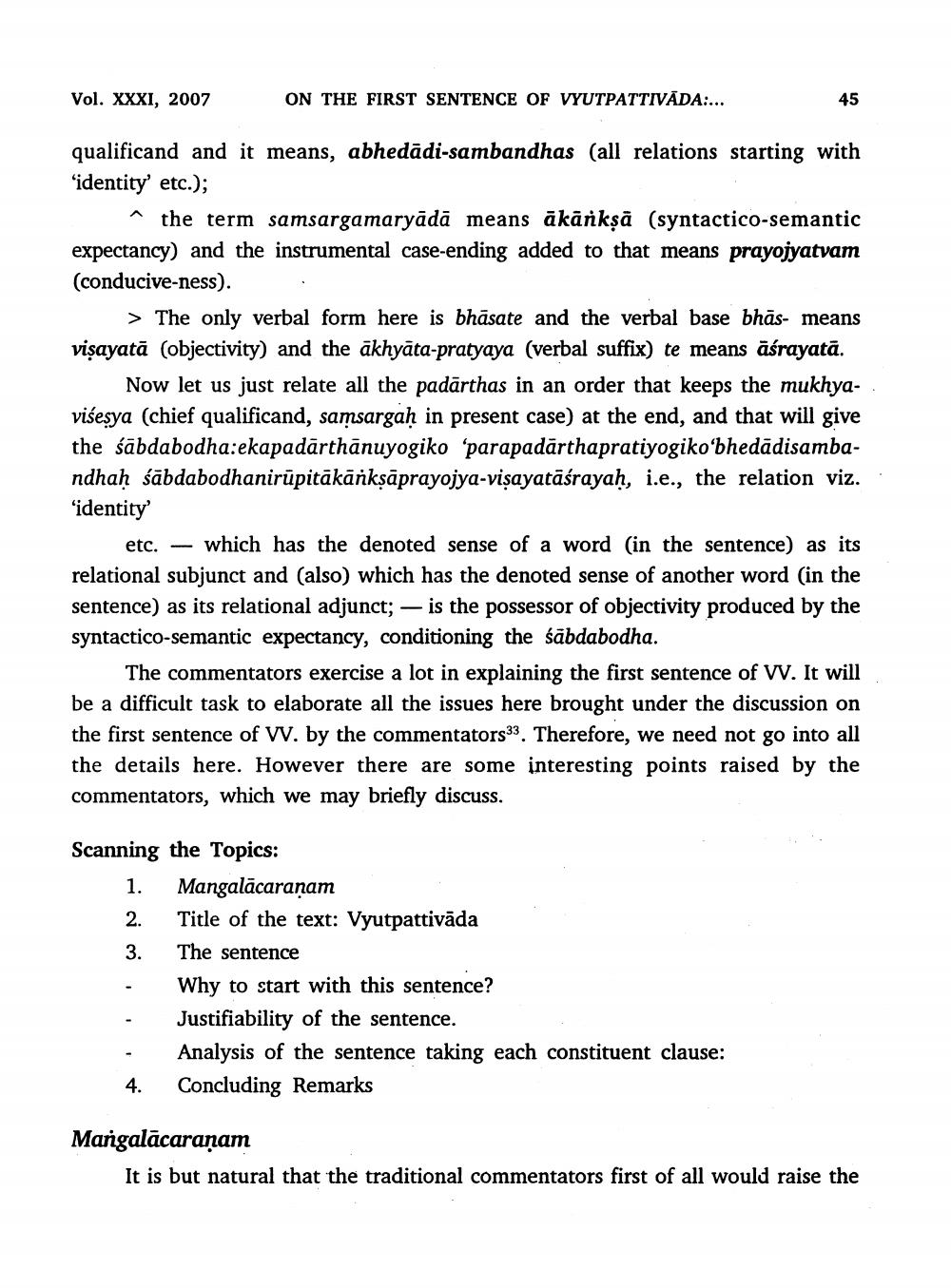________________
Vol. XXXI, 2007
ON THE FIRST SENTENCE OF VYUTPATTIVĀDA:...
45
qualificand and it means, abhedādi-sambandhas (all relations starting with 'identity' etc.);
^ the term samsargamaryādā means ākāňkşă (syntactico-semantic expectancy) and the instrumental case-ending added to that means prayojyatvam (conducive-ness).
> The only verbal form here is bhāsate and the verbal base bhās- means visayatā (objectivity) and the ākhyāta-pratyaya (verbal suffix) te means āśrayatā.
Now let us just relate all the padārthas in an order that keeps the mukhya-. višesya (chief qualificand, samsargaḥ in present case) at the end, and that will give the śābdabodha:ekapadārthānuyogiko 'parapadārthapratiyogiko'bhedādisambandhaḥ śābdabodhanirūpitākānksāprayojya-visayatāśrayah, i.e., the relation viz. 'identity
etc. — which has the denoted sense of a word (in the sentence) as its relational subjunct and (also) which has the denoted sense of another word (in the sentence) as its relational adjunct; - is the possessor of objectivity produced by the syntactico-semantic expectancy, conditioning the sābdabodha.
The commentators exercise a lot in explaining the first sentence of W. It will be a difficult task to elaborate all the issues here brought under the discussion on the first sentence of W. by the commentators33. Therefore, we need not go into all the details here. However there are some interesting points raised by the commentators, which we may briefly discuss.
2.
Scanning the Topics: 1. Mangalācaranam
Title of the text: Vyutpattivāda 3. The sentence
Why to start with this sentence? Justifiability of the sentence.
Analysis of the sentence taking each constituent clause: 4. Concluding Remarks
Mangalācaranam
It is but natural that the traditional commentators first of all would raise the




